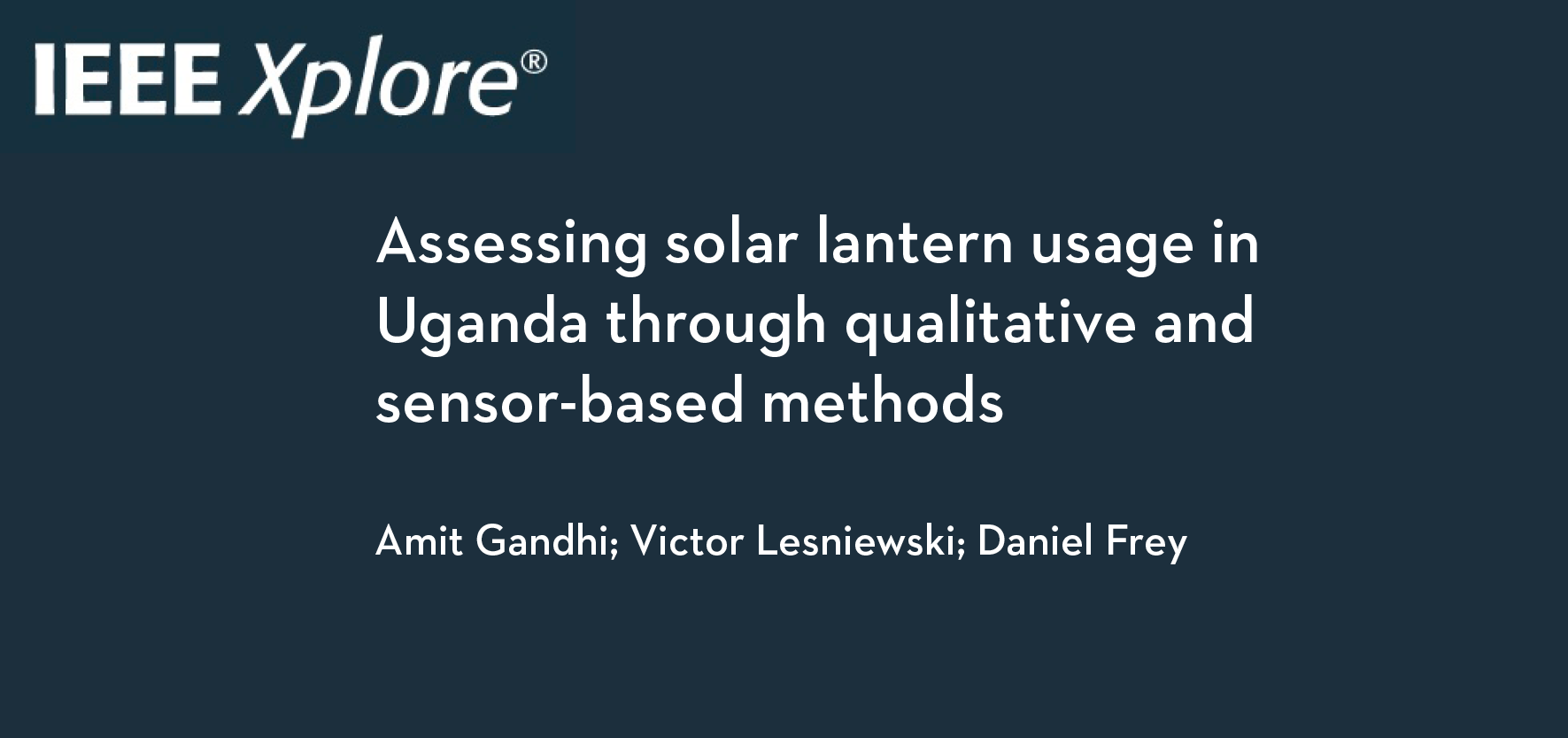
Assessing solar lantern usage in Uganda through qualitative and sensor-based methods
Published in: 2016 IEEE Global Humanitarian Technology Conference (GHTC)
Abstract
Solar lanterns have been shown to be a promising technology for providing reliable lighting access in off-grid communities or areas with intermediate power, and these technologies have shown significant market uptake in communities in Uganda. In this study, we examine the usage patterns and behaviors of existing d.light S20 and Firefly Mobile solar lantern customers in peri-urban and rural Uganda using interviews and sensor-based data collection. At the start of the study, semi-structured interviews were administered to solar lantern users to establish baseline demographic information and understand the user preference model, and users were provided an instrumented solar lantern in exchange for their current solar lantern. After a 10-day usage period, a follow-up survey was administered to assess the usage of the lantern and the instrumented product was recollected. These user responses, when compared to the data collected from the instrumentation, were shown to over-report product usage with an average error of 141%.
Contact
Kendra Leith, MIT D-Lab Associate Director for Research

